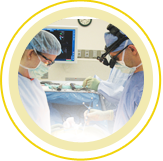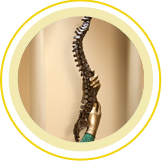Understanding spinal arthritis might help you avoid this chronic degenerative disease. Once you are diagnosed, medical science cannot reverse it, and it can’t be cured. There is little good news here other than the numerous therapies to reduce symptoms and some ways to prevent arthritis in the spine.
What Is Spinal Arthritis
Spinal arthritis is an inflammation of the facet joints in the spine. It can occur anywhere in the spine but most frequently it affects the lower back or lumbar region. It can also affect your neck area or cervical part of the spine.
Osteoarthritis is the most common form of arthritis in the spine caused mainly by wear and tear, and it results in pain and stiffness.
Understanding Spinal Arthritis Risks Factors

We know that aging causes many conditions and spinal arthritis is no different. The longer we live, we suffer from wear and tear on all our joints. The facet joints in our spine are affected by every move we make.
Other risk factors that can lead to spinal arthritis include the following:
- Being overweight or obese
- Putting repetitive stress on our back and spine through our job or leisure activity
- Having an autoimmune disorder like lupus
- Having inflammatory bowel disease
- Having Psoriasis
- Having Gout
- Having Diabetes
You can mitigate some of these risk factors by maintaining a healthy weight (or losing extra pounds), being more active, keeping your blood sugar levels in a healthy range, and using proper technique when lifting heavy objects.
Understanding Spinal Arthritis Symptoms
Pain and stiffness in the lower back are the main symptoms of spinal arthritis. The pain becomes worse in the early morning and at night. As time passes, you slowly lose flexibility and can’t straighten your back. Decreased mobility follows.
Weakness in your whole body, fatigue, and numbness in your arms or legs can occur.
Since this condition cannot be reversed, it can lead to nerve compression, bone spurs, and spinal stenosis.
Treatments for Spinal Arthritis
Over-the-counter medications are tried first to help relieve symptoms.
Physical therapy is employed using stretches and exercises.
Steroid injections can reduce inflammation, but they only last for a short time.
Surgery is recommended if other treatments do not provide sufficient relief.
Contact Spine & Scoliosis Specialists at 336.333.6306 for a consultation and professional diagnosis in Greensboro or High Point, NC if you are experiencing ongoing back pain. Never self diagnose.



